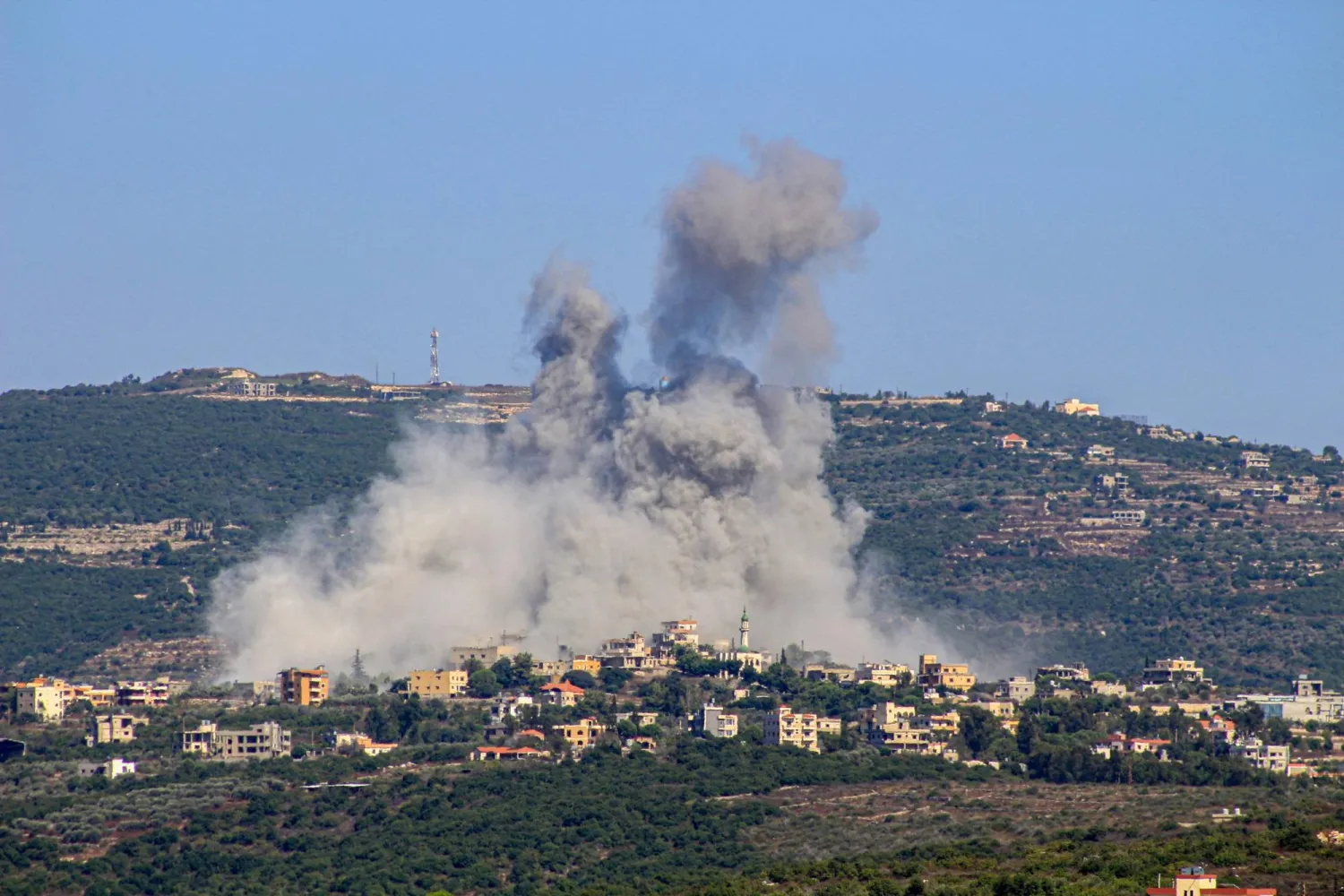An Israeli drone strike outside the southern Lebanese town of Shaqra on Monday killed two people and wounded three, including a child, Lebanese civil defense said.
The rescue service did not say whether the dead were fighters or civilians.
This was the first deadly Israeli strike on Lebanon since what Israel said was a Hezbollah rocket attack on Saturday that killed 12 in the Israeli-occupied Golan Heights. Hezbollah has denied involvement in that strike.
Saturday's rocket strike killed 12 teenagers and children in the Golan Heights adding to concerns that Israel and the Iran-backed group could engage in a full-scale war.
As armed tensions escalate between the two, flights at Beirut airport were canceled or delayed on Monday with Lebanon's Middle East Airlines (MEA) saying disruptions to its schedule were related to insurance risks.
Hezbollah and the Israeli military have increased cross-border exchanges of fire since the Gaza war began. The conflict has disrupted flights and shipping across the region, including during reciprocal drone and missile attacks between Israel and Iran in April.
Israeli Drone Strike Near South Lebanon Kills 2

Smoke billows following an Israeli airstrike in the southern Lebanese border village of Chihine on July 28, 2024. (Photo by KAWNAT HAJU / AFP)

Israeli Drone Strike Near South Lebanon Kills 2

Smoke billows following an Israeli airstrike in the southern Lebanese border village of Chihine on July 28, 2024. (Photo by KAWNAT HAJU / AFP)
لم تشترك بعد
انشئ حساباً خاصاً بك لتحصل على أخبار مخصصة لك ولتتمتع بخاصية حفظ المقالات وتتلقى نشراتنا البريدية المتنوعة







